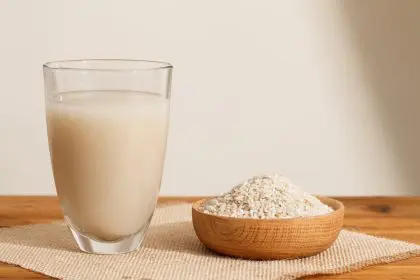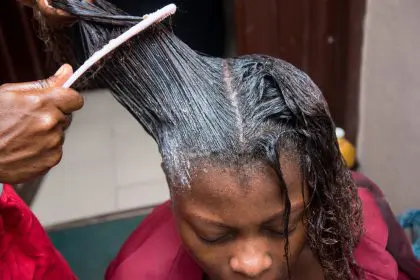Recent scientific investigations have unveiled an unexpected benefit of omega-3 fatty acids: their potential to revolutionize hair health. While these essential nutrients have long been celebrated for their contributions to heart and brain function, emerging research suggests they may also play a crucial role in maintaining vibrant, healthy hair and promoting optimal scalp conditions.
As researchers delve deeper into the connection between nutrition and hair growth, omega-3 fatty acids are gaining attention for their ability to support follicular health. These compounds influence hair development at a cellular level, improving scalp circulation, reducing inflammation, and enhancing the natural growth cycle.
The science behind fatty acids
Omega-3 fatty acids exist in three primary forms: DHA, EPA, and ALA. These compounds are found abundantly in fatty fish such as salmon and mackerel, as well as in plant-based sources like flaxseeds, walnuts, and soybeans. Their biological function extends far beyond general health, as they work to enhance blood circulation and reduce inflammation, both of which are crucial for maintaining an optimal scalp environment.
Improved blood flow to hair follicles ensures a steady supply of nutrients and oxygen, which are essential for hair growth and regeneration. Inflammation reduction plays an equally critical role by minimizing scalp conditions that can interfere with healthy hair development. This combination of benefits provides a strong foundation for omega-3 fatty acids as a potential game changer in hair care.
Research-backed benefits
Scientific studies have demonstrated omega-3’s ability to influence hair growth through multiple mechanisms. Research focusing on the topical application of fermented fish oil has revealed significant improvements in hair length, in some cases surpassing the effectiveness of conventional hair growth treatments. These compounds actively stimulate the hair follicle’s anagen, or growth phase, leading to stronger, healthier strands.
Additionally, omega-3s contribute to sebum production, the natural oil that protects the scalp from dryness and irritation. A well-moisturized scalp creates a suitable environment for sustained hair growth while reducing issues like flaking and itching. Many individuals who incorporate omega-3-rich foods or supplements into their diet report noticeable changes in hair texture, thickness, and overall vitality.
Nutritional pathways to hair health
The strategic inclusion of omega-3-rich foods in daily meals offers a natural approach to enhancing hair quality. Fatty fish such as salmon, tuna, and sardines remain the most potent sources, but plant-based alternatives provide viable options for those following vegetarian or vegan diets. Walnuts, chia seeds, hemp seeds, and algae-based supplements offer essential fatty acids without requiring seafood consumption.
A well-balanced diet that includes these nutrient-dense foods may improve not only hair growth but also overall scalp health. Many individuals experience increased hair shine and reduced breakage when maintaining adequate omega-3 intake. The benefits extend beyond aesthetics, contributing to long-term follicle health and resilience against environmental stressors.
Supplementation considerations
Omega-3 supplements provide a convenient option for those struggling to meet dietary intake through food alone. These supplements come in various forms, including fish oil capsules, algae-based options, and flaxseed oil. For optimal absorption, omega-3 supplements are best taken with meals containing healthy fats.
While results may not be immediate, consistent intake over several weeks or months typically yields noticeable improvements. Many health experts emphasize the importance of long-term supplementation rather than short-term use, as the body requires ongoing omega-3 support for sustained benefits.
However, individual needs vary, and some people may require different dosages based on factors such as age, lifestyle, and existing health conditions. Consulting with a healthcare provider before starting supplementation ensures an appropriate approach tailored to specific requirements.
Safety and precautions
While omega-3 supplementation is generally considered safe, certain precautions should be taken. Individuals on blood-thinning medications should exercise caution, as omega-3s possess mild anticoagulant properties. Those with seafood allergies should opt for plant-based alternatives to avoid adverse reactions.
Additionally, excessive omega-3 intake may lead to digestive discomfort in some individuals. Following recommended dosages and incorporating supplements gradually can help minimize any potential side effects. Understanding individual tolerance levels is key to ensuring the best experience while reaping the benefits of these essential fatty acids.
Future implications
As scientific research continues to uncover the full potential of omega-3 fatty acids, their role in hair health is expected to gain even more attention. Future studies may explore additional applications, including targeted treatments for hair thinning and scalp conditions. The possibility of integrating omega-3s into topical hair care products also holds promise for those seeking direct nourishment to the scalp.
With growing awareness of the link between nutrition and hair vitality, omega-3 fatty acids may soon become a staple in hair care routines. Whether through diet, supplementation, or topical applications, their ability to enhance hair health naturally offers a compelling alternative to traditional treatments.














